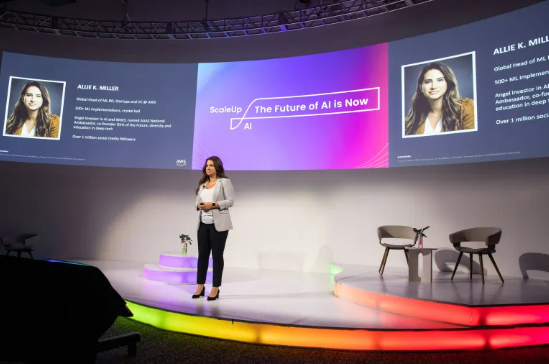As retailers adopt machine learning tech, their data will become more democratized
Interest in artificial intelligence has risen dramatically in just the last few years, but AI software is still a small portion of overall software sales.
Likewise, adoption rates for AI vary widely by industry. But it is increasingly favored by retailers, both for e-commerce and in-store sales efforts.
In terms of e-commerce, retailers are using AI software to further connect with customers, notes the study Artificial Intelligence Software Market Forecasts: Use Cases for Machine Learning, Deep Learning, Natural Language Processing, Computer Vision, Machine Reasoning, and Strong AI by Omdia.
This report looks at how AI technologies are being used in each of those industries and how mature each market is.
Bricks-and-mortar retailers are using AI to track offline behavior, Omdia says. They are using AI to offer new and innovative experiences in the store, such as virtual fitting rooms. “AI is also being applied to both customer-facing applications and behind the scenes to make the retail experience more efficient and personalized,” Omdia notes.
The fashion industry, which is considered part of the retail sector, has also discovered AI, Omdia says.
“The fashion industry is increasingly turning to AI to help it cope with changing trends and disparate customer preferences. Fashion designers, apparel and fashion accessory manufacturers, and fashion industry consultants can use AI-based technology to connect browsing and shopping history data, sales figures, and even product features to ensure future products meet the everchanging desires of their customers.”
This interest is driving sales of AI software, and Omdia predicts the market will increase in value by 21.1% from 2019 to 2025. The top eight markets for AI investments during this period (in ranked order) are consumer, healthcare, retail, financial services, automotive, telecommunications, business services and advertising.
As Omdia points out, the term artificial intelligence is often misunderstood. It is not a single technology, but an umbrella term for about a dozen related technologies. The most commonly used is machine learning.
“AI is defined as a loose umbrella term that covers several different technologies that are inspired by a human biological system, giving computers human-like abilities of perception (hearing, seeing), reasoning, planning, and decision-making – even if they do not work in the same way,” Omdia explains.
“Most of the AI systems today are ML-based systems. Computers learn patterns in data, in a supervised or unsupervised manner, and then apply these learnings to make predictions, classify data, recognize objects, or understand speech or text.”
AI-enabled machines or systems utilize complex algorithms to sort through myriad data points. They imitate human behavior in intelligent ways – for example, allowing retailers to gather shopper insights in a predictive manner. That enables retailers to predict a consumers’ next actions based on both previous purchasing patterns and future responses to market trends.
Machine learning technologies are being adopted by a growing number of retailers, and as they are, data will become more democratized.
That’s good news, as teams with limited data management technical experience will be able to run these services without having to worry about infrastructure limitations or the original source of data.
Further, several advances have been made with machine learning technology in recent years, which enables business users and data professionals to more easily share data in real time. This will empower retailers to make better business decisions by knowing how to ask better questions of their datasets.
That will, in turn, enable the retailer to better achieve business goals.
Written by David Weldon and republished with permission from AI Business.



